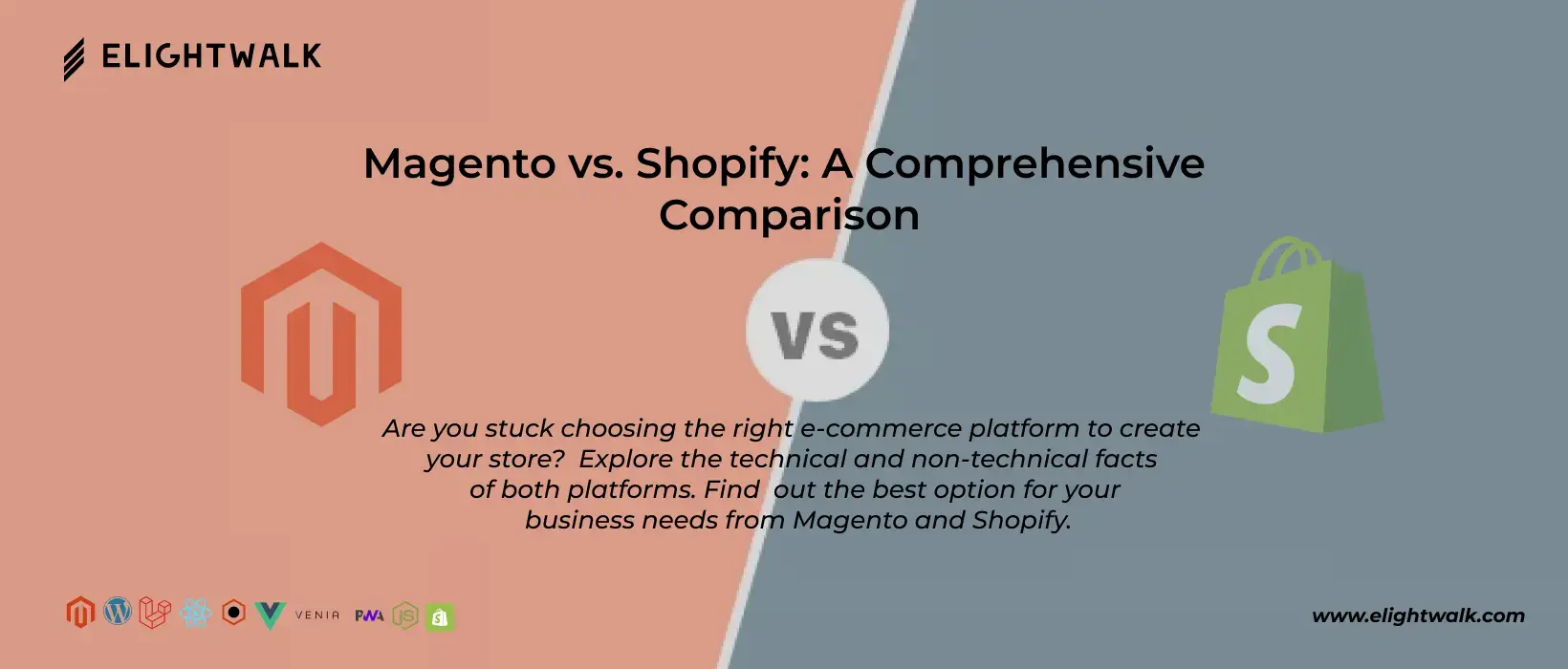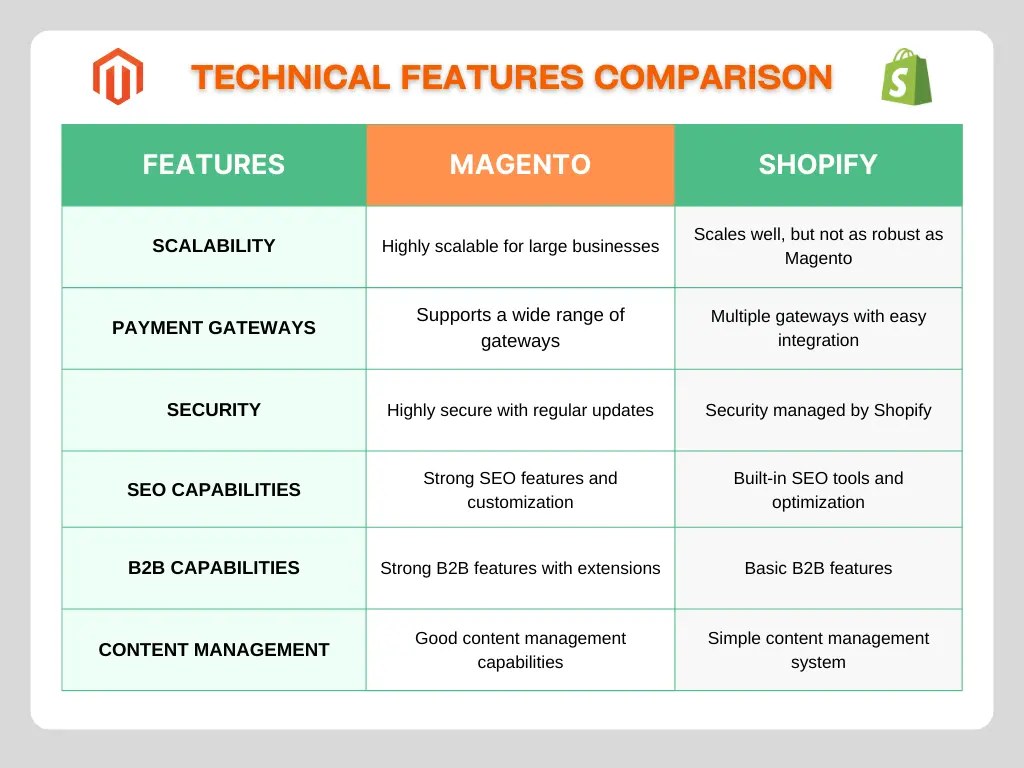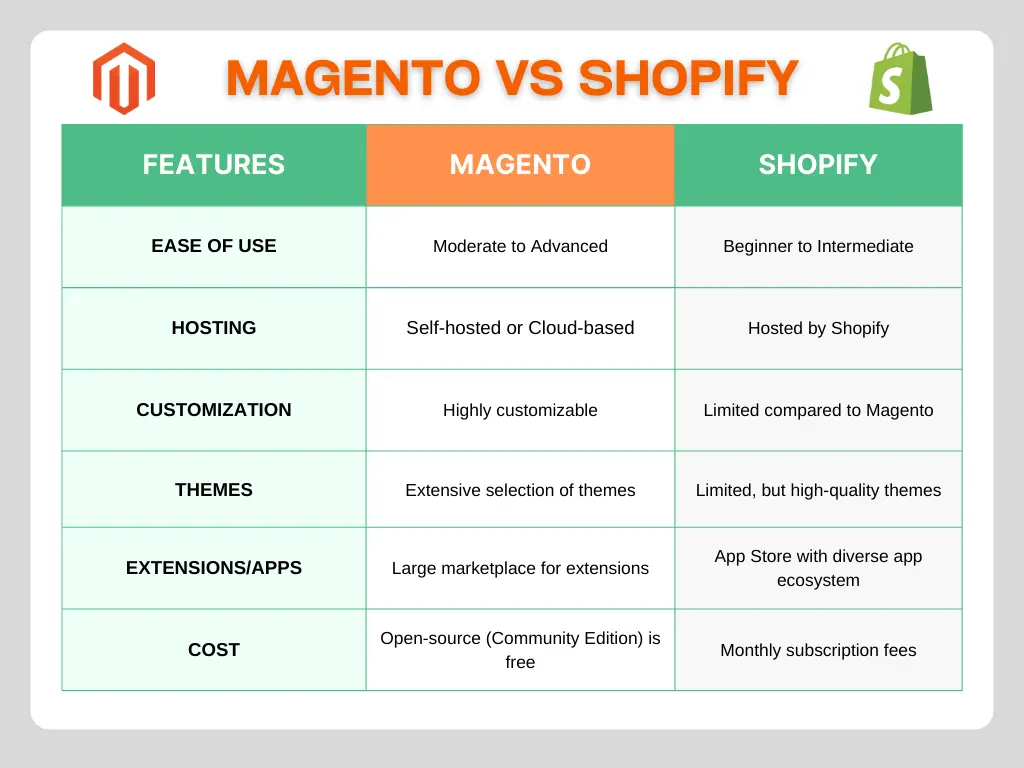Are you an e-commerce merchant or a business owner? One question arises when you think about developing your online business website or store. What should you choose for creating a smooth website, Magento or Shopify?
Magento and Shopify are included in a successful website development platform and are recommended by all development industries. Magento and Shopify have unique features and advantages that cater to different business needs. Magento is a popular choice for larger businesses due to its flexibility and scalability, especially for those with complex requirements. Shopify is suitable for small to medium-sized companies requiring a quick and easy setup, thanks to its user-friendly interface and numerous ready-to-use templates. Ultimately, the choice between Magento and Shopify depends on your business goals and needs.
Elighwalk is one of the most experienced software companies that works with both platforms. This article discusses one of the features and advantages and how to choose the right platform for your business. Before we go deeper, we will start with a basic understanding of both platforms.





